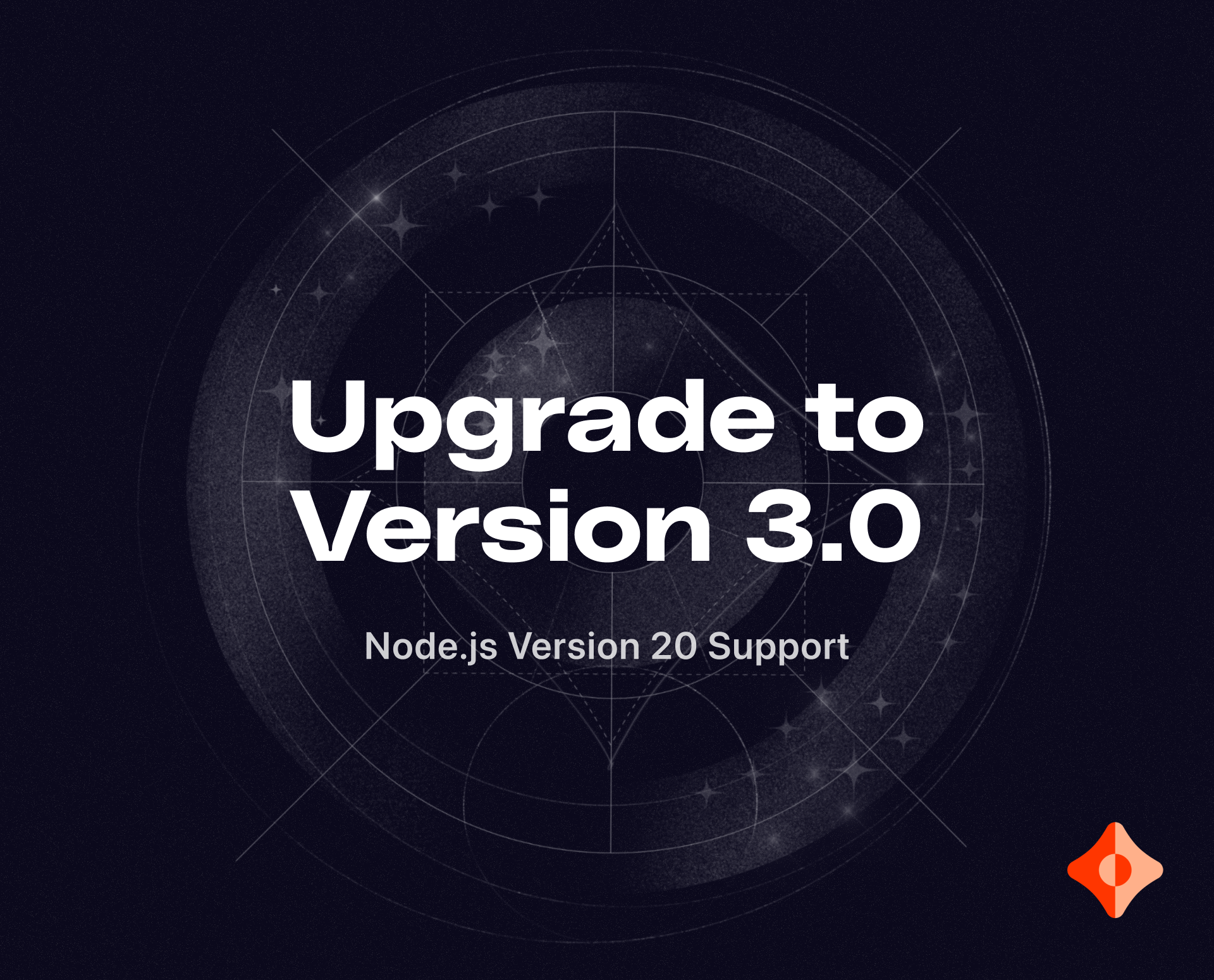Introducing Ceramic 3.0: With Node.js Version 20 Support
We urge you to upgrade your Ceramic packages to this version for an optimal experience

We’re excited to share the latest improvements to Ceramic, version 3.0. This upgrade is packed with significant improvements:
Ceramic Node Software 3.0
We’re kicking things off with the launch of Ceramic 3.0, the latest version of our node software. We urge you to upgrade your Ceramic packages to this version for an optimal experience.
Node.js Version 20 Support
A key highlight of Ceramic 3.0 is its compatibility with Node.js version 20. Please note that older versions of Node.js, such as v16, are no longer supported with the new Ceramic versions. Therefore, upgrading your Ceramic node to v3.0 necessitates a simultaneous upgrade to Node.js v20.
This change allows you to leverage the most recent features and performance enhancements offered by Node.js.
Upgrade Your Ceramic Node
For those running a Ceramic node, we strongly advise upgrading to the latest version. While older nodes may continue to function, they will no longer receive technical support or bug fixes. To ensure you’re well-supported, and prevent future compatibility issues, we recommend updating your node.
Prior to transitioning, ensure your client application builds against the latest versions of the @ceramicnetwork/http-client package. This step will guarantee a seamless experience with future updates.
Click here for more info on upgrading your Ceramic node.
Goodbye to Non-Standard DID Methods
We’ve retired some older, unused code—specifically, the DID:ETH, DID:NFT, and DID:SAFE features. These were previously available but were never recommended for production use. We’re now officially discontinuing them. If you’ve been using these DID methods, it’s time to let go as they’re no longer supported.
Future Features on the Roadmap
Ceramic 3.0 paves the way for exciting features that we anticipate in upcoming releases, such as worker threads for parallelized signature verification. These changes are expected to boost performance, setting the stage for more future enhancements.
As always we'd love to hear your feedback on the forum!

